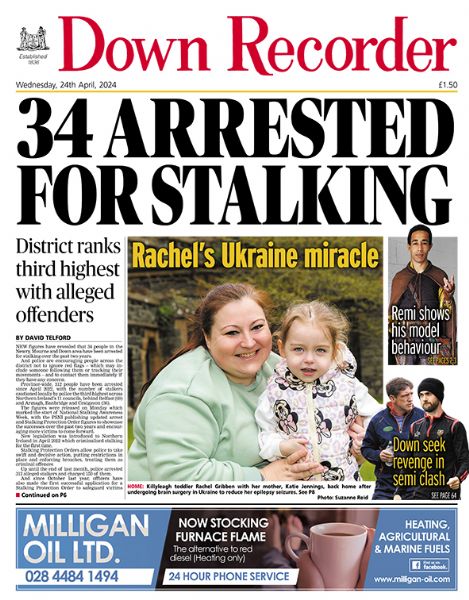Retired police officers association to appeal court ruling on Loughinisland
Retired police officers association to appeal court ruling on Loughinisland
12 December 2018
THE organisation representing former police officers is to appeal a High Court judgement which, it claims, endorses unproven allegations against its members over the 1994 Loughinisland murders.
On November 29, Mrs Justice Keegan ruled that the Police Ombudsman was entitled to express his belief that “collusion was a significant feature” in the UVF attack that claimed the lives of six innocent men watching a World Cup soccer match on television at the Heights Bar.
The men who died were Adrian Rogan (34), Malcolm Jenkinson (53), Barney Green (87), Daniel McCreanor (59), Patrick O’Hare (35) and 39 year-old Eamon Byrne. Five others were also wounded in the atrocity for which no-one has been brought to justice.
The court ruling followed Mrs Justice Keegan’s review of a previous determination by Mr Justice McCloskey — issued in December last year — that the Ombudsman had no legal basis for making public statements around issues that did not result in criminal or disciplinary proceedings against any named officer.
Mrs Justice Keegan overturned that ruling by stating: “In the unique situation presented by the Troubles, it is appropriate that bereaved families should have the benefit of an independent, investigative report such as this, particularly where no prosecutions have been brought.”
The retired officers claim this interpretation permits the Ombudsman to deliver damning judgements “without the inconvenience” of having his evidential material independently scrutinised.
Last week, a spokesman for the Northern Ireland Retired Police Officers Association (NIRPOA) said they “can confirm that they will appeal the recent Judicial Review decision concerning the powers of the Police Ombudsman for Northern Ireland”, adding that “it would not therefore be appropriate to make any further comment at this point”.
The NIRPOA said it was mindful of the effect the legal wrangle was having on the Loughinisland families, but reiterated that they were entitled to the same standard of justice as all other citizens.
“First and foremost the NIRPOA wish to make it clear that our thoughts are with the friends and families of those who were murdered at the Heights Bar in 1994. It remains our sincere wish that those responsible will be brought to justice,” the spokesman said.
In her judgement, Mrs Justice Keegan acknowledged what she said were flaws in the Ombudsman’s initial report into the atrocity, but found that the Ombudsman had the authority to make a public statement around the events both before and after the UVF mass murder.
The judge said: “It is of course correct that the Ombudsman must exercise his powers in a fair way. The procedural deficits that were highlighted in the first challenge have been corrected. In any event, this revised report does not contain a finding of either criminal or civil responsibility against any individual.”
The NIRPOA said it stood by its original position that the Ombudsman’s investigation and report were seriously flawed.
It said the role of the Ombudsman, which it fully supported, was to investigate, assemble evidence of criminal or disciplinary offences, and produce that evidence to the appropriate court or disciplinary tribunal for due process to take place.
Immediately following Mrs Justice Keegan’s ruling, the NIRPOA spokesman said “although he has produced no evidence whatsoever, the Ombudsman has seen fit to pronounce that the police were guilty of ‘collusion’ with terrorists who carried out a vile atrocity”.

